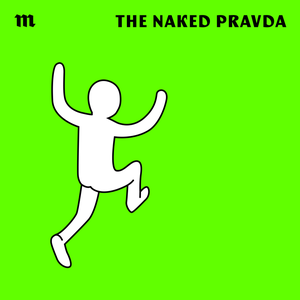
The Naked Pravda
Boris Goryachev
Meduza’s English-language podcast, The Naked Pravda highlights how our top reporting intersects with the wider research and expertise that exists about Russia.
- 34 minutes 28 secondsThe banking scandal that broke Russia’s anti-Kremlin opposition
Last month, as another 30 days of war passed in Ukraine, Russian activists, economists, and politicians in the exiled anti-Kremlin opposition spent much of their time arguing about a banking scandal from the last decade. The debate has been as mystifying to outsiders as it is confusing to those without an education in finance.
With help from Ilya Shumanov, the general director of Transparency International-Russia in exile, The Naked Pravda breaks down the squabbling and criminal stakes at the heart of the scandal involving Probusinessbank, the Anti-Corruption Foundation, and activist Maxim Katz.
Timestamps for this episode:
- (5:27) The complex schemes at play in Probusinessbank
- (20:35) Where the Russian authorities and the FSB fit in
- (32:21) Political repression and legal battles
Как поддержать нашу редакцию — даже если вы в России и вам очень страшно
9 November 2024, 10:21 am - 36 minutes 42 secondsMoldova’s knife-edge election and E.U. referendum
On October 20, Moldovans cast their ballots in both a presidential election and a constitutional referendum — and the results shocked many.
In the referendum, which asked whether the country should change its constitution to include the goal of joining the European Union, the “yes” vote won by just over 50 percent. Meanwhile, in the presidential election, pro-E.U. incumbent Maia Sandu came in first but failed to win an outright majority.
The day after the vote, Sandu accused “criminal groups” of attempting to undermine the democratic process by working with foreign forces to try and buy as many as 300,000 votes. Now, she’ll face pro-Russian candidate and former prosecutor general Alexandr Stoianoglo in a high-stakes run-off scheduled for November 3.
What does all of this say about Moldova’s political landscape and future foreign policy orientation? To find out, The Naked Pravda spoke to Moldovan journalist and writer Paula Erizanu and Ecaterina Locoman, a senior lecturer in international studies at the University of Pennsylvania’s Lauder Institute.
Timestamps for this episode:
- (3:05) Judiciary Reforms and Controversies
- (6:25) The Referendum and Its Implications
- (9:47) Election Day Atmosphere and Concerns
- (12:28) Post-Election Developments and Fraud Allegations
- (17:01) Russia’s Influence and Moldova’s Future
- (21:26) Impact of the Ukraine War on Moldova
- (23:14) Kremlin’s Strategy and Moldova’s Challenges
- (25:03) Public Opinion and the E.U. Referendum
- (30:37) Moldova’s Path Forward
Prefer reading over listening? Subscribe to Meduza’s weekly newsletter The Beet to receive abridged excerpts from this episode.
Как поддержать нашу редакцию — даже если вы в России и вам очень страшно
2 November 2024, 12:48 am - 42 minutes 3 secondsHow Russian propaganda and ordinary Americans build ‘bespoke realities’
Earlier this week, journalists at WIRED and The Washington Post reported that a “Russian-aligned propaganda network notorious for creating deepfake whistleblower videos” appears to be behind a coordinated effort to promote false sexual misconduct allegations against vice presidential candidate Tim Walz.
At WIRED, David Gilbert wrote that researchers have linked a group they’re calling “Storm-1516” to the campaign against Walz. “Storm-1516 has a long history of posting fake whistleblower videos, and often deepfake videos, to push Kremlin talking points to the West,” Gilbert explained. A few days earlier, NBC News also reported on Storm-1516, citing its work as demonstrative of Russian propaganda’s growing utilization of artificial intelligence and more sophisticated bot networks.
Two days after the WIRED report, Washington Post journalist and Russia expert Catherine Belton reported on another bad actor implicated in spreading the allegations against Walz: John Mark Dougan, a former Florida cop with a long and winding record that includes internal affairs investigations, early discharge from the Marines, and a penchant for posting confidential data about thousands of police officers, federal agents, and judges on his blog, which led to 21 state charges of extortion and wiretapping. To escape that indictment, Dougan fled to Moscow, where he soon put his conspiratorial blogging skills to work, effectively enlisting in the Russian intelligence community’s “Internet war” against America.
Records show and disinformation researchers argue that Dougan is responsible for content on dozens of fake news sites with deliberately misleading names like DC Weekly, Chicago Chronicle, and Atlanta Observer. Lately, he’s reportedly started using a GRU-facilitated server and AI generator to create phony videos like the deepfake video showing one of Walz’s former students accusing him of sexual abuse.
With a little more than a week until the U.S. presidential election, Meduza spoke to Renée DiResta — the author of Invisible Rulers: The People Who Turn Lies Into Reality and an associate research professor at Georgetown University’s McCourt School of Public Policy — about Russian propaganda, how it’s evolved over the years, and how American social networks are responding (and not responding) ahead of the November 2024 vote.
Timestamps for this episode:
- (5:00) The Role of Social Networks in Identifying Fake Accounts
- (9:35) Government and Platform Collaboration on Inauthentic Behavior
- (16:46) A Case Study: Maxim Shugaley and Russian Influence in Libya
- (21:45) Twitter’s Public Data Dilemma
- (24:25) Bespoke Realities and Content Moderation
- (25:57) The Tenet Media Case
- (27:28) The Role of Influencers in Propaganda
- (35:26) Marketing and Propaganda: A Historical Perspective
- (38:27) The Democratization of Propaganda
- (39:36) Name Your Poison: Tyranny or Chaos
Как поддержать нашу редакцию — даже если вы в России и вам очень страшно
26 October 2024, 8:14 am - 29 minutes 14 secondsNorth Korea's role in the Ukraine War
In the past few days, both the Zelensky administration in Kyiv and South Korea’s national spy agency have said that they believe North Korea has decided to send more than ten thousand troops to support Russia in its invasion of Ukraine. On October 18, following an emergency security meeting called by South Korea’s president, the country’s National Intelligence Service released an assessment claiming that the North is sending four brigades of 12,000 soldiers, including special forces, to Ukraine, which would be an unprecedented move, if true.
Diplomats in Russia and North Korea say these reports are false.
Meanwhile, American officials have warned repeatedly of the growing military cooperation between Russia and North Korea, saying that Washington has observed signs of increased material support to Moscow, including both artillery shells and missiles, such as KN-23 short-range ballistic missiles that have been recovered from wreckage in Ukraine. According to British journalists, North Korea supplies Russia with about half of the approximately three million artillery shells that Russian forces use annually in the war against Ukraine.
However, Western officials have expressed skepticism about the claims that North Korea is sending large numbers of soldiers, apart from smaller groups of engineers and observers. For example, just the other day, NATO’s general secretary spoke at a press conference right alongside Zelensky and directly contradicted him, saying there is no evidence that North Korean soldiers are involved in the fight.
For a crash course in Russian-North Korean relations and a hard look at recent claims from the Ukrainian and South Korean governments of thousands of North Korean soldiers flooding the battlefield in Ukraine, The Naked Pravda welcomed Dr. Fyodor Tertitskiy, a lecturer at Korea University and a leading researcher on North Korean politics.
Timestamps for this episode:
- (3:15) The historical context of North Korea’s military strategy
- (5:41) South Korean diplomacy
- (7:45) Potential military aid and consequences
- (9:38) North Korean diplomatic tactics
- (12:06) China’s role in the Russian-North Korean alliance
- (14:46) Russia’s weapon purchases from North Korea
- (19:12) The historical context of Soviet/Russian-North Korean relations
- (25:04) Symbolic gestures for Vladimir Putin
Как поддержать нашу редакцию — даже если вы в России и вам очень страшно
19 October 2024, 3:34 am - 28 minutes 15 secondsBreaking down Russia's 2025 war budget
The Russian government’s new draft budget for 2025 through 2027 was introduced to the State Duma this week in its first reading. The state’s proposed spending exceeds earlier predictions, with 41.5 trillion rubles (more than $435 billion) allocated for next year alone — and that may not be the final amount. A record share of the budget is classified as “secret” or “top secret” — nearly a third of all proposed expenditures.
To discuss the draft budget, focusing on allocations to the military, The Naked Pravda welcomed back Alexandra Prokopenko, a fellow at the Carnegie Russia Eurasia Center in Berlin, a former columnist for the business newspaper Vedomosti, and a former senior advisor at Russia’s Central Bank.
Timestamps for this episode:
- (2:26) Breaking down Russia’s next round of federal spending on the military and national security
- (4:08) Economic implications and rising taxes
- (7:18) Russia’s National Wealth Fund and budget deficit
- (10:14) Patriotism and public-sector funding
- (11:54) Domestic (in)security
- (15:12) Lobbying and budget allocations
- (21:45) Western Sanctions and Russia’s economic resilience
Как поддержать нашу редакцию — даже если вы в России и вам очень страшно
5 October 2024, 4:28 am - 25 minutes 45 secondsThe North Caucasian clan warfare behind a deadly dispute at Wildberries, ‘Russia’s Amazon’
Wildberries founder and CEO Tatyana Kim (who recently restored her maiden name) has been having a hell of a time shaking loose her husband, Vladislav Bakalchuk, but their very public divorce is just the tip of the iceberg in what’s become a battle between some of the most powerful political groups in Russia’s North Caucasus.
On September 18: Vladislav Bakalchuk tried to storm the company’s office in the Romanov Dvor business center — just a few hundred yards from the Kremlin itself. Bakalchuk has very publicly opposed the Wildberries-RussGroup merger and recently met with Chechen leader Ramzan Kadyrov to plead his case, winning the dictator’s support. At the Moscow office, Bakalchuk’s entourage had two former senior executives, but — more importantly — he was accompanied by former and current Chechen police officers and National Guardsmen, as well as trained martial artists from Chechnya, including former world and European taekwondo champion Umar Chichaev. According to Novaya Gazeta Europe, Chichaev fired his service weapon, though his status in the National Guard is a bit fuzzy.
On the other side of the conflict, defending the Wildberries office was another team of police and police-adjacent men with ties to Ingushetia. According to the newspaper Novaya Gazeta, Wildberries had recently hired a private security company with ties to Ingush State Duma deputy Bekkhan Barakhoev, who, until three years ago, worked as a vice president of a subsidiary of Russ Outdoor — the smaller company now merging with Wildberries. The most important shadow figure at Russ Outdoor, meanwhile, is Suleiman Kerimov, a billionaire senator from Dagestan.
The office shootout left two Ingush men dead and more than two dozen suspects in police custody, though Vladislav Bakalchuk miraculously escaped charges as a mere witness. He claims he merely showed up for a planned business meeting, but Tatyana Kim calls the incident a failed attempt at a hostile takeover. To learn more about this story and its broader political context, The Naked Pravda spoke to Ilya Shumanov, the general director of Transparency International-Russia in exile.
Timestamps for this episode:
- (3:08) The power struggle between Kim and Bakalchuk
- (4:55) Suleiman Kerimov: Dagestan’s “shadow governor”
- (7:20) The Wildberries-RussGroup merger and its implications
- (9:47) Clan battles and regional tensions
- (21:44) The future of corporate raiding in Russia
Как поддержать нашу редакцию — даже если вы в России и вам очень страшно
29 September 2024, 3:18 am - 45 minutes 26 secondsAmerica's expanding crackdown on RT and Moscow's covert influence operations
Last month, the FBI raided the homes of Scott Ritter, a former United Nations weapons inspector and critic of American foreign policy, and Dimitri Simes, a former think tank executive and an adviser to Donald Trump’s 2016 presidential campaign. In late August, The New York Times reported that these searches were part of the U.S. Justice Department’s “broad criminal investigation into Americans who have worked with Russia’s state television networks.”
In the past two weeks, U.S. officials have taken numerous measures against Russia Today and its affiliates and accelerated police actions against Russia-based individuals and entities accused of covert influence operations, including money laundering, sanctions violations, and unregistered foreign agent work. For example, the Justice Department announced the seizure of 32 Internet domains used in Russian government-directed foreign malign influence campaigns (colloquially referred to as “Doppelganger”), alleging that Russian companies used online domains to impersonate legitimate news entities and unique media brands to spread Russian government propaganda covertly, violating U.S. laws against money laundering and trademarks.
That same day, the Justice Department indicted two Russia-based employees of RT for conspiring to commit money laundering and conspiring to violate the Foreign Agents Registration Act in a $10-million scheme to fund and direct a Tennessee-based company to publish and disseminate information “with hidden Russian-government messaging.” A day later, officials charged Dmitri Simes and his wife with participating in a plot to violate U.S. sanctions and launder money obtained from Russian state television.
About a week later, the U.S. State Department issued a special “alert to the world,” declaring that new information obtained over the past year reveals that Russia Today has “moved beyond being simply a media outlet” and has become “an entity with cyber capabilities” that’s “also engaged in information operations, covert influence, and military procurement.” Washington claims that the Russian government embedded within RT in Spring 2023 an entity “with cyber operational capabilities and ties to Russian intelligence.” Based on these allegations, Meta — the parent company of Facebook, Instagram, and WhatsApp — soon announced that it had banned Russia Today and its affiliates from all its platforms.
A day before that big announcement from the State Department, a jury in Tampa, Florida, convicted four American citizens of conspiracy to act as agents of the Russian government. Case evidence first reported by RFE/RL shows that the activists on trial secretly coordinated their activities and received funding from “Anti-Globalization Movement” head Alexander Ionov, who acted on orders from Russia’s Federal Security Service.
To discuss this recent explosion of American police and diplomatic activity targeting RT and Russian covert influence operations in the U.S., The Naked Pravda spoke to RFE/RL journalist Mike Eckel, who coauthored the September 6 report on how Ionov and his FSB handlers “chatted and plotted to sow discord in the United States.”
Timestamps for this episode:
- (5:54) The U.S. government’s coordinated campaign against Russian covert influence operations
- (7:18) Legal strategies when prosecuting Moscow’s malign activities
- (8:37) Alexander Ionov and the FSB
- (15:11) American activists and Russian covert operations
- (18:52) “Foreign agency” in the U.S. vs. in Russia
- (32:12) Dmitri Simes and Channel One
- (36:18) Scott Ritter and Russia Today
Как поддержать нашу редакцию — даже если вы в России и вам очень страшно
18 September 2024, 6:16 am - 22 minutes 45 secondsIranian ballistic missiles have entered the Ukraine War chat
The Pentagon says it’s confirmed that Iran has given “a number of close-range ballistic missiles to Russia.” While Washington isn’t sure exactly how many rockets are being handed over to Moscow, the U.S. Defense Department assesses that Russia could begin putting them to use within a few weeks, “leading to the deaths of even more Ukrainian civilians.”
“One has to assume that if Iran is providing Russia with these types of missiles, that it’s very likely it would not be a one-time good deal, that this would be a source of capability that Russia would seek to tap in the future,” Pentagon Press Secretary Air Force Major General Pat Ryder told reporters on September 10. That same day, U.S. Secretary of State Antony Blinken said in London that the new supply of Iranian missiles will allow Russia to use more of its own longer-range ballistic missiles for targets that are farther from the frontline.
To find out where the Russian-Iranian partnership is headed and what, if anything, changes in the Ukraine War with Tehran sending ballistic missiles to Moscow, The Naked Pravda spoke to Dr. Nicole Grajewski, a fellow in the Nuclear Policy Program at the Carnegie Endowment for International Peace and an associate researcher with the Belfer Center’s Project on Managing the Atom at the Harvard Kennedy School of Government. Dr. Grajewski also has a forthcoming book, titled Russia and Iran: Partners in Defiance from Syria to Ukraine.
Timestamps for this episode:
- (1:54) Technical details about these ballistic missiles
- (5:05) The role of sanctions and the Iran nuclear deal
- (8:51) Iranian drones and ballistic missiles in Ukraine
- (10:16) Russian-Iranian military cooperation
- (16:07) Factional politics in Iran and Russia
Как поддержать нашу редакцию — даже если вы в России и вам очень страшно
13 September 2024, 5:14 am - 34 minutes 57 secondsThe science of Russian Internet censorship and surveillance
Russia’s federal censor has been throttling YouTube playback speeds for the last month or so, just like it slowed Twitter data transfer speeds back in 2021. Throughout August, Russian Internet users have reported sudden and widespread outages in access to popular apps and services like Telegram, WhatsApp, Skype, Wikipedia, Steam, Discord, and more. While the RuNet crackdown has become a familiar feature of the Putin regime, its technical side is hard to understand.
For help with the science of Russian Internet censorship and surveillance, Meduza spoke to Sarkis Darbinyan, a senior legal counsel to the digital rights group RKS Global (which recently published a report titled “State of Surveillance: A Study on How the Russian State, Through Laws and Technology, Carries Out Digital Surveillance”) and Philipp Dietrich, a project officer for the “Risks of the Sovereign Internet for Russia and Beyond” project at the German Council on Foreign Relations’s Center for Order and Governance in Eastern Europe, Russia, and Central Asia.
Timestamps for this episode:
- (3:58) The technical underbelly of Internet throttling
- (6:24) Telegram’s public role and past political controversies in Russia
- (10:05) Police surveillance tools and data leaks
- (19:15) Meet SORM, the FSB’s surveillance system
- (30:54) VPNs, Google Global Cache, and the Internet’s CDN infrastructure
Как поддержать нашу редакцию — даже если вы в России и вам очень страшно
24 August 2024, 6:46 am - 37 minutes 23 secondsRussian conscripts and Ukraine's Kursk offensive
It’s been almost two weeks since the Ukrainian Armed Forces smashed through Russia’s border defenses in the Kursk region and began a surprise offensive that has advanced about 17 miles at its deepest point, according to Meduza’s estimates. Regional officials in Kursk have evacuated towns along the Ukrainian border, and more than 120,000 people have been forced to leave their homes. Vladimir Putin has met several times with top national security officials, but Russia’s president hasn’t yet bothered to make a national address, even though part of the country — a real part of the country, not just Ukrainian lands that Moscow claims — is now under foreign occupation.
At the same time, Russian troops are still attacking Ukrainian defenses in the Donbas, where Kyiv remains vulnerable after months of slow Russian advances. The world is watching to see if the Kursk incursion can force the Kremlin to pull soldiers from eastern Ukraine.
One of the most sensitive issues inside Russia related to Ukraine’s Kursk offensive is the use of conscript soldiers. To discuss the course of the Kursk incursion and to understand why sending conscripts into Russia’s new conflict zone is so tricky, The Naked Pravda spoke to RFE/RL journalists Mark Krutov and Sergey Dobrynin, who have tracked the war closely and recently wrote an article addressing how the Russian military plans to use conscripts amid Kyiv’s offensive in Kursk.
Timestamps for this episode:
- (3:04) How Ukraine penetrated Russia’s border so easily
- (9:10) Comparisons to previous incursions and Ukraine’s Kharkiv counteroffensive
- (16:10) The role and impact of conscripts
- (29:00) Political sensitivity and Russian public reactions
Как поддержать нашу редакцию — даже если вы в России и вам очень страшно
17 August 2024, 10:51 am - 39 minutes 49 secondsThe long-term economic effects of Russia’s war in Ukraine
Since Russia’s full-scale invasion of Ukraine in 2022, the West has imposed over 16,000 sanctions on Russia, intending to cripple the economy driving the Kremlin’s war machine. But the much-anticipated collapse of Russia’s economy never came to pass. In fact, Russia’s wartime economy has proven to be surprisingly resilient, with the IMF estimating that Russia’s GDP grew by 3.5% in 2023 and will continue to grow by 3.2% in 2024. The Kremlin has managed to keep Russia’s economy afloat, in large part, by increased military spending and forging new partnerships with countries like China and India who don’t mind flying in the face of Western sanctions.
And although the Kremlin touts all of this as evidence that the West and its sanctions have failed in their endeavors to defeat Russia, a closer look under the hood reveals a more desperate disposition. A recent Financial Times article paints a more bleak picture of Russia’s relative power in the world's geopolitical hierarchy and the economic consequences it brings.
Financial Times’ Russia correspondent, Anastasiia Stognei, joined The Naked Pravda to reconcile these two vastly different images being painted of Russia’s economy and to discuss the potential long-term consequences of the war in Russia.
Timestamps for this episode:
- (3:17) Sanctions and the Russian economy
- (6:22) Russia’s wartime economic strategies
- (15:23) Long-term effects on Russian society
- (24:55) Future trade relations and economic outlook
Как поддержать нашу редакцию — даже если вы в России и вам очень страшно
15 June 2024, 12:34 am - More Episodes? Get the App
Your feedback is valuable to us. Should you encounter any bugs, glitches, lack of functionality or other problems, please email us on [email protected] or join Moon.FM Telegram Group where you can talk directly to the dev team who are happy to answer any queries.
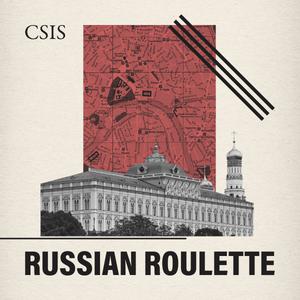 Russian Roulette
Russian Roulette
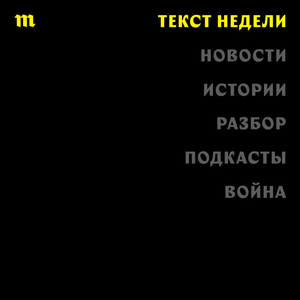 Текст недели
Текст недели
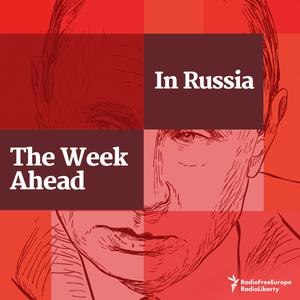 Podcast: The Week Ahead In Russia - Radio Free Europe / Radio Liberty
Podcast: The Week Ahead In Russia - Radio Free Europe / Radio Liberty
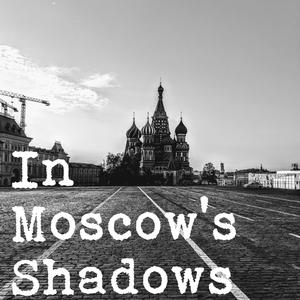 In Moscow's Shadows
In Moscow's Shadows
 The Power Vertical Podcast by Brian Whitmore
The Power Vertical Podcast by Brian Whitmore
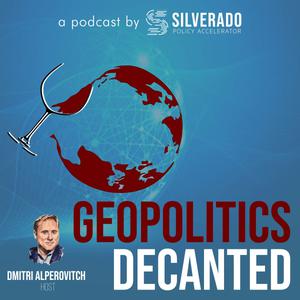 Geopolitics Decanted by Silverado
Geopolitics Decanted by Silverado